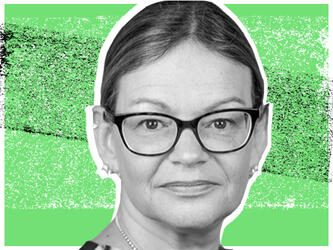The horserace that isn't, but might be
Therefore, if you’re looking for insider tips to help you win your own political bets, you are probably in the wrong place. But I do hope you stick around anyway. I’ll be here for the next six weeks writing about the twist and turns of the presidential campaign, with a particular focus on polling issues. I’ll be keeping an eye on the commentary and discussions around sampling and language, as well as checking in on the ways that the campaigns are spinning their numbers.
It won’t surprise you to know that as a researcher, I like to be in control. When it comes to quantitative data, I like to know the questions, methodology, sample, weighting – even whether answer choices are rotating or not. Everything. If I can’t be in control though I like my data in aggregate. Aggregating data can smooth out a lot of the sins of individual polls. So let’s take a look at the landscape as it currently lies, using a “poll of polls” approach. Wherever possible, data below is drawn from polls of likely voters in the US. In addition, I should note that our “poll of polls” data below is pre-last night’s debate (which most commentators scored as a win for Romney – Ed.)
The reality is that this is not, currently, a tight race. On Wednesday, Nate Silver at FiveThirtyEight put the probability of President Obama winning the Electoral College at 84.7%. If this were to become a tight race, it wouldn’t sneak up on us. We’d know about it. Fundamentally, without a major event or gaffe, it would be a shock to wake up on 7 November to a President-Elect Romney.
Taking a closer look at the race on a national scale throughout 2012, we see that there have been times when President Obama and Governor Romney have been close. There have been times when the race has seemed tight or when there was an opening for Romney to find his stride and pull ahead. However, Romney has never achieved the sort of high numbers that the President has. He has never been decisively in the lead.
While the short-hand has always been that a sitting President with less than 50% favourability is unlikely to win re-election, Romney has not been able to capitalise on this. The president has been able to get back over the 50% “cut off”. Moreover, since the conventions, both candidates’ favourability ratings seem to have stabilised – at least in relation to each other.
You might wonder how important the polls actually are, given that there isn’t a lot of room for change in the current landscape. But should the landscape itself change dramatically, it’s a whole new ball game. And then we’d need to know what numbers we can trust to tell us what voters are thinking, who is likely to turn out and vote, what will persuade them and who is best to convey the messages that will change minds.
Polling would be our only answer before the ballots are counted – and none of us are very good at waiting that long.
Stat of the week:
- 71% of Republicans in a National Poll (from a left leaning organisation) said that they think “pollsters are intentionally skewing their polls this year to help Barack Obama”
Thanks to Kelsey Cohen, Allison Quigley and Jacqueline Wallace for their help and the “Poll of Polls” charts.
Emily Hunt is director of insights at Edelman Berland, Edelman’s insights and analytics subsidiary. She is a dual US/UK citizen and has a strong interest in politics on both sides of the Atlantic. Emily has an MA in Political Campaign Management from New York University and started her career as a political operative in the US before moving into polling. You can follow her on Twitter at @emilyinpublic or find out more about her here.

We hope you enjoyed this article.
Research Live is published by MRS.
The Market Research Society (MRS) exists to promote and protect the research sector, showcasing how research delivers impact for businesses and government.
Members of MRS enjoy many benefits including tailoured policy guidance, discounts on training and conferences, and access to member-only content.
For example, there's an archive of winning case studies from over a decade of MRS Awards.
Find out more about the benefits of joining MRS here.













2 Comments
Jeffrey Henning
13 years ago
What is your methodology? Do you take the average, the median or a weighted average? Which polls do you use?
Like Reply Report
Anon
13 years ago
The question above does need answering. You say you "like to know the questions, methodology, sample, weighting – even whether answer choices are rotating or not", and then you provide little or no substantiation for your conclusions here.
Like Reply Report